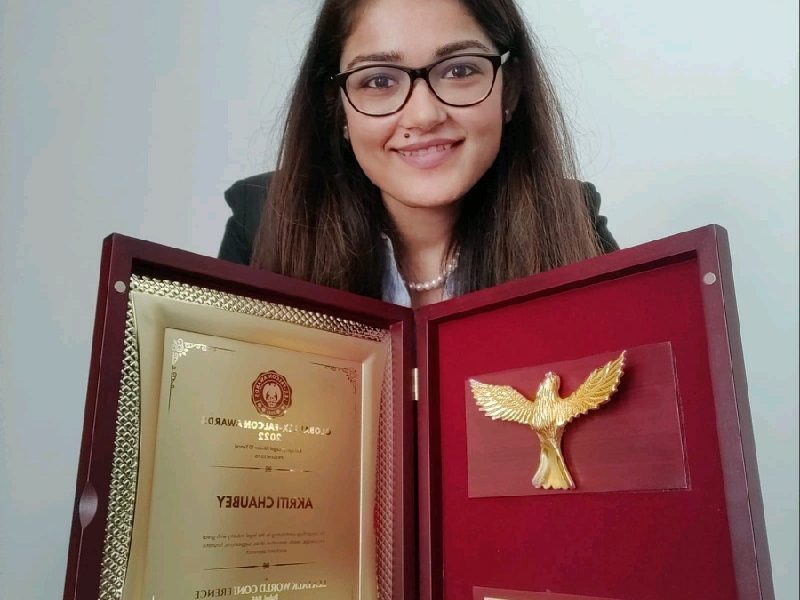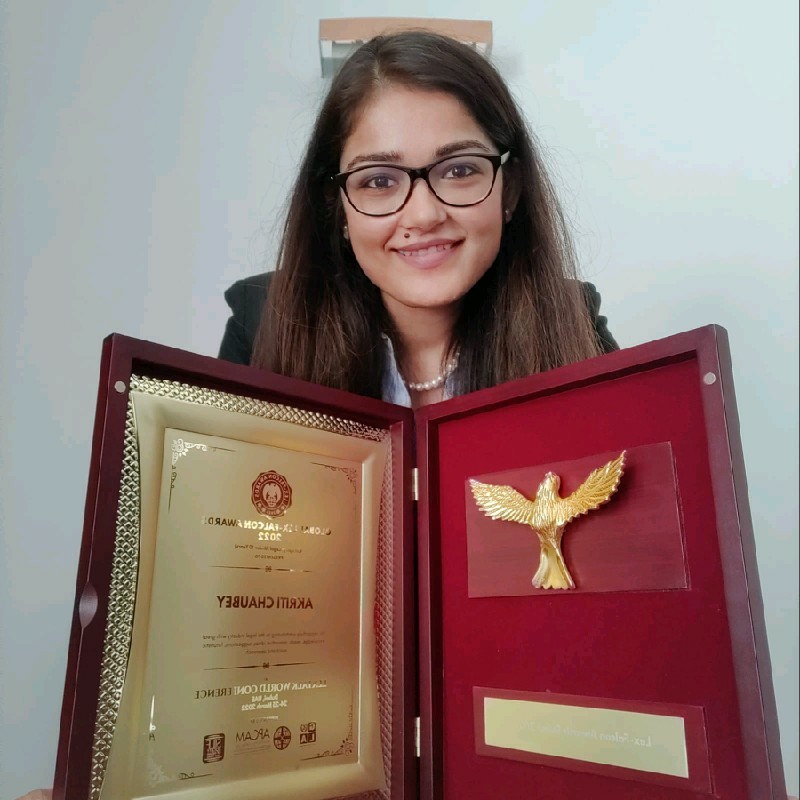This interview has been published by Priyanka Karwa and The SuperLawyer Team

Ma’am, to start this conversation, could you please tell us a little bit about your background and how you became interested in law?
Well, to be honest, I didn’t always know that I wanted to be a lawyer. In fact, when I was younger, I had aspirations of becoming a doctor, just like my late father. However, when I was in my teens, Delhi was witnessing some trials- such as the Priyadarshini Mattoo case, Jessica Lal case- which were being widely reported. The the strategy developed by the lawyers in those cases, coupled with their past experience were the subject of media attention. I was fascinated by how small legal points, which the common man was not even aware of, could be used for or against them when they found themselves in the middle of a legal trial. I used to diligently read up all reports on such trials and gradually, my interest in the world of law grew, and I decided to pursue it as a career.
You have worked on some high-profile cases in the past, such as the Ayodhya dispute and the Triple Talaq matter. Can you talk about what it was like to work on these cases and the impact they had on you personally?
Those were definitely some challenging cases, but also very rewarding ones. Working on such high-profile cases was an incredible learning experience, and it taught me a lot about myself, my abilities, and the legal profession as a whole. Personally, it was a great feeling to be a part of these landmark cases that had such a significant impact on Indian society. These matters involved important constitutional questions and when one is assisting a counsel before the Hon’ble Constitution bench, you have to make sure to deliver your best work, and the judges are always so well prepared and one has to be ready for all kinds of questions. It therefore takes a lot of time to focus and prepare for these hearings. In fact, when I was working on the Ayodhya matter, I had not imagined that the regular hearing will start in the month of July 2019 (as the matter had been adjourned several times before) and I was actually scheduled to get engaged in that month. However, once the hearing dates were fixed by the Hon’ble Court, everything had to take a backseat and I decided to postpone my engagement. I think for any lawyer it is a lifetime opportunity to assist the stalwarts who have appeared in these matters, and while giving your best shot, you also get to learn so much just by being around them.
You have experience in litigation, arbitration, and corporate law. Which of these areas do you enjoy working in the most and why?
Well, I enjoy all of them for different reasons. Litigation is exciting because you get to argue your case in front of a judge and put your legal skills to the test. Arbitration allows for a more collaborative approach to dispute resolution, which I find fascinating. And corporate law is great because you get to work with companies and help them navigate the legal complexities of running a business. So, it really depends on the situation and the client. But if I had to choose, I would say litigation is what I enjoy the most. There’s something incredibly exhilarating about standing before a judge and arguing your case. Plus, every case is unique and presents its own set of challenges, which keeps things interesting.
What do you think are the most important skills for a successful lawyer to have?
There are many skills that are important for a successful lawyer to have, but I would say that the most important one is willingness to put in the hard work- one needs to read every paper, each word- several times, this is absolutely non-negotiable. Other important skills are attention to detail, good communication skills, and the ability to think on your feet are some of the most important. In addition, being able to empathize with your clients and understand their needs is crucial in building trust and creating a successful attorney-client relationship.
Can you talk about a particularly challenging case you worked on and how you overcame the challenges you faced?
One of the most challenging cases I worked on was the Ayodhya matter, wherein so many issues arose for the first time, such as whether idol is a perpetual minor?. When I am faced with complex legal issues, I try to read all literature which is remotely connected to it, be it from India or outside, it usually gives me the answer directly or at other times equips me to navigate the issue.
In my day to day practice, I find the cases concerning medical negligence really challenging as they require a deep understanding of medical terminology and it requires a lot of research to build a strong case. But, I have been fortunate enough to have a team of experienced doctors who have graciously helped me in understanding the medical aspects of such cases. Through their guidance, I have been able to build a strong arguments and perform in this niche area.
How has the legal profession in India changed since you began practicing law, and what do you see as the biggest challenges facing the profession today?
When I first started practicing law, I noticed that there was a lot of resistance to change, especially when it came to adapting to new technologies and working remotely. However, the pandemic has forced everyone to embrace remote work and virtual proceedings, and I believe this has opened up new opportunities for the legal profession to become more accessible and efficient.
The biggest challenge facing the profession today is the lack of diversity and inclusion. We still have a long way to go in terms of increasing representation of marginalized communities and women in leadership roles, especially in the judiciary. When I started out, we used to only see 1-2 women judges in the Supreme Court, however things have definitely improved and I have been fortunate enough to witness so many women judges, including 4 of them at the same time in the Supreme Court. However, I am waiting for the day when this ratio is equal and of course, eagerly waiting for a female Chief Justice of India. I think all of us, as officers of the court need to actively work towards creating more inclusive and diverse environments, not only to improve representation but also to bring in fresh perspectives and ideas.
You have experience working as an independent legal practitioner as well as an associate at a law firm. What are the main differences between these two roles, and which do you prefer?
The main difference between being an independent legal practitioner and working at a law firm is the level of autonomy you have. As an independent practitioner, you have the freedom to choose your own clients and cases, and you have complete control over your schedule and work style. On the other hand, working at a law firm can provide you with more resources, support, sustained income and opportunities to work on high-profile cases.
Personally, I enjoy the flexibility of being an independent practitioner, but I also appreciate the collaborative and supportive environment that law firms can provide. It really depends on your individual work style and goals.
As a woman working in the legal profession, have you faced any difficulties or challenges that your male counterparts have not? If so, can you tell us about those challenges and how you overcame them?
Yes, as a woman in the legal profession, I have faced some unique challenges, such as gender bias, microaggressions, and sometimes being underestimated by my clients and peers. It can be frustrating to feel like you have to work harder to prove yourself, but I’ve learned to channel that frustration into motivation and dedication to my work. In fact, I feel that these people really pushed me to become more thorough with my brief and ultimately contributed to my growth. Over the time, when these clients saw my work, they also reposed faith in my capabilities as a lawyer.
Lastly, what advice would you give to someone who is considering a career in law, particularly someone who is just starting out?
My advice to anyone starting out in the legal profession is to keep an open mind and be willing to learn and adapt. The legal profession is constantly evolving, and it’s important to stay up to date on new developments and technologies. Additionally, don’t be afraid to take on new challenges and try different areas of law to find what you’re passionate about. Further, put in as much work as you can, in this profession, it is very difficult to survive without putting in the work and once you find something that you have a passion for, hard-work will not feel nearly as dreadful. Lastly, always strive to maintain high standards of professionalism, ethics, and integrity in all your work. The legal profession is a noble one, and it’s important to uphold its values and principles.
Get in touch with Akriti Chaubey-
























